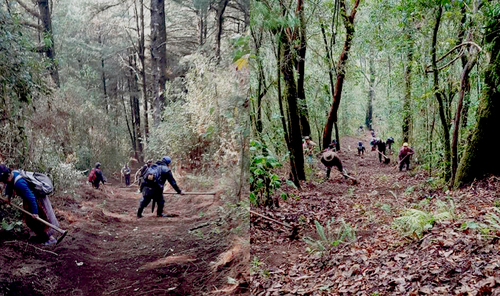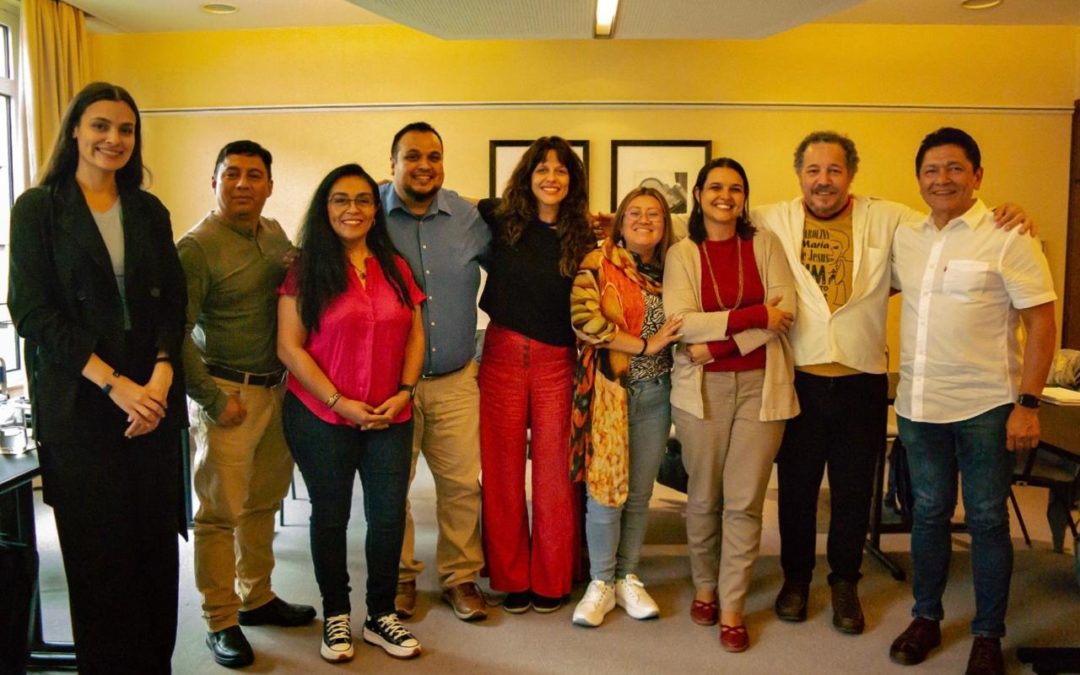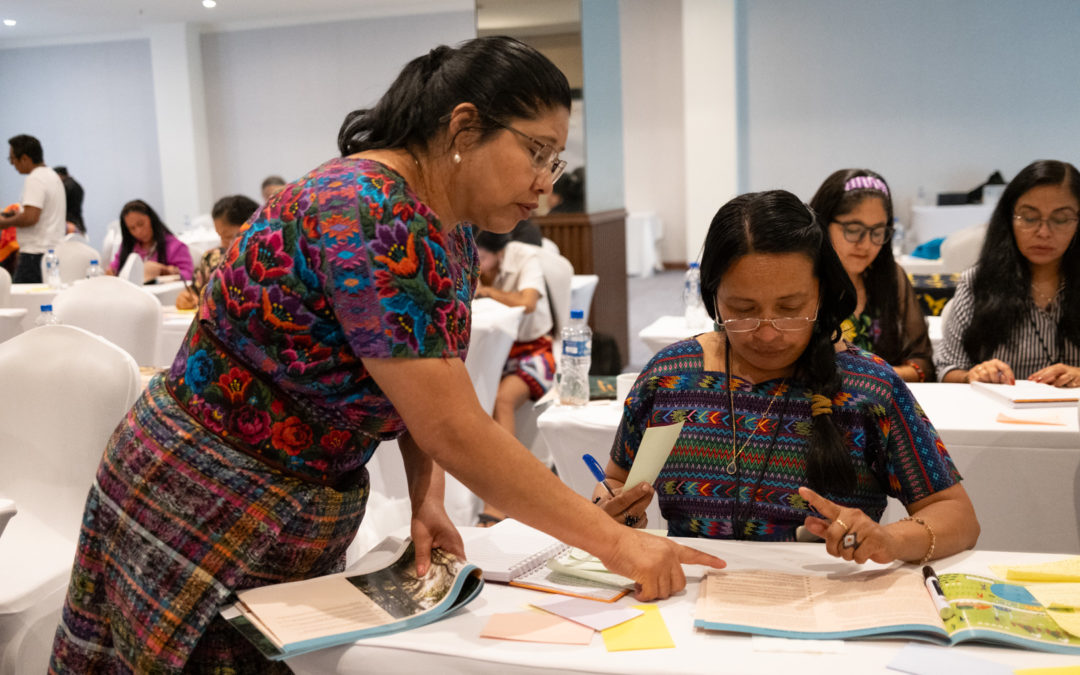The attention of the COVID-19′ pandemic has shifted to a problem that affects forests around the world: forest fires.
The communal forests of the grassroots community organizations of the Utz Che’ Network have been seriously affected by this problem derived from the illegal logging carried out by neighbors in neighboring communities, in addition to the advance of the agricultural frontier and population growth.
Forest fires in these communities are becoming more frequent and require greater effort and investment from the communities in prevention, control and liquidation activities. However, the State has refused to invest in the resources needed to support the efforts of community organizations, and instead has made invisible the work they have done in protecting their forests and all their biodiversity.
Part of this effort has been the firebreak gaps that the Parcialidad Chuamazan in Totonicapán has made for the prevention of forest fires. The men and women of the Parcialidad have an ancestral practice called k’axk’ol, which they consider an obligation, and which consists of serving in the production of forest plants in the nursery, reforestation, control and vigilance during the December season to prevent the felling of the Pinabete (a protected species) and participation in the Parcialidad’s management bodies.

In order to face this challenge, it is necessary to improve the capacities for community forest monitoring, the implementation of early warning systems and immediate response, which implies the use of new technologies, such as the provision of drones, communication radios and equipment for forest fire prevention, control and liquidation.
These are part of the efforts made by community members:
Parcialidad Vásquez
On Sunday, March 22, a raging fire was reported in which community members and communal authorities carried out control actions. The fire affected about 1 hectare of forest. A week later, it was reactivated, becoming an underground fire. With the efforts of the community members and CONRED’s forest firemen, the fire was extinguished on April 19.
On April 18, another large fire was reported, exceeding the capacity of the community members. In response, with the support of the Utz Che’ Network, the necessary coordination was made with CONRED, INAB, the Guatemalan Army, the Municipal Fire Department and the Mayor of the municipality of Totonicapán to continue the combat and control activities.
Parcialidad Ajpacajá
On Thursday, March 26, a large forest fire was reported in this communal forest, which covers an area of 222 hectares. It was attended to by the community, but exceeded its capacity.
Due to the lack of forest fire brigades and personnel available to attend to the emergency, it was necessary to coordinate with the volunteer firemen of the municipality of Totonicapán and members of the Guatemalan army who worked together with the community members to control and liquidate the fire.
Cooperativa Integral Agrícola el Bosque R.L (COOBOSQUE)
On April 12, in the Pinalón forest in the village of Montañita la Virgen (San Pedro Pínula, Jalapa), a forest fire broke out, affecting approximately 50 hectares of mixed forest (conifers and oak), classified as an aerial and terrestrial fire that destroyed a large number of species of flora and fauna.
With great limitations and much effort, the community members immediately attended to the emergency until it was extinguished.
On April 14, another forest fire occurred in the forest located in the Montañita La Virgen and Ciénega del Cacao villages, which affected approximately 60 hectares of forest, also attended to by the community members.
Xinca de Quesada Indigenous Community
At the end of February, the mixed forest of the villages El Santrillo and Laguna Seca was affected by an aerial and terrestrial forest fire, which caused damage to approximately 90 hectares. Fifty community members responded to the need to carry out the corresponding combat activities.
On April 19, another fire was reported in the forest of the village of El Jícaro, which consumed about two hectares of mixed forest (conifers and oaks). After several hours, organized community members, using their own limited means and resources, managed to control the fire.
Apacalaj
On March 26 and 27, 150 community members from Aldeas El Carmen, Pacalá and Llano Largo attended a forest fire control in the communal forest, which affected approximately 7 hectares.
El Jícaro
During April, different areas of the community forest of the El Jícaro community, in the municipality of San Jerónimo, Baja Verapaz, were affected by recurrent forest fires. Within the affected areas are also the forest plantations established in the areas called El Trigal, El Manzanillo, El Chol and the El Durazno farmhouse. The community have been the ones who have carried out the response actions and so far have managed to liquidate all the fires that have arisen despite the limitations they face due to lack of equipment and tools.
Once again, actions taken by communities in the face of forest fires highlight the great value that practices such as k’axk’ol and other ancestral methods possess.



